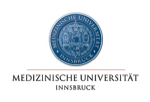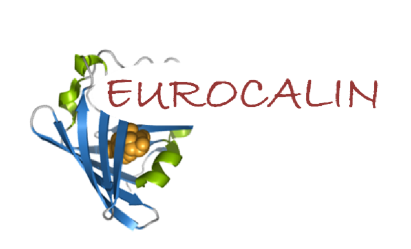The Medical Universiy of Innsbruck is responsible for the work package preclinical research. MUI has key scientific and medical expertise on Hepcidin and anemia. MUI will provide target and disease relevant animal models for assessment of mechanism of action and pharmacodynamics. The in vivo models will be an important step to characterize the biological effects and therapeutic potential of Anticalins.
The Medical University of Innsbruck is one out of three public Medical Universities in Austria. The university is an academic research center with a major emphasis on pre- and postgraduate education and patient care. Guenter Weiss is head of the Division of Clinical Immunology and Infectious Diseases at the Medical University of Innsbruck. He is one of the world‘s leading experts in the field of anemia of chronic diseases. Besides many important contributions on the elucidation of the pathophysiology underlying ACD and for the diagnosis and therapy of this disease, he has also published several key reviews on this topic. The Divison of Clinical Immunology and Infectious Diseases consists (apart from the research and routine diagnostic laboratories) of an inpatient and an outpatient ward where, apart from multiple other entities, numerous patients with ACD are diagnosed and treated. Therefore, this institution is not only of central importance for pre-clinical analyses of Anticalins in cell culture and rodent models of ACD but also harbors the capacity for translational research to transmit this new knowledge to the clinics to improve the treatment of ACD.
Dr. Weiss and co-workers elucidated pathways by which inflammation driven molecules, such as hepcidin, cause the retention of iron within macrophages thus leading to an iron restricted erythropoiesis, the major cornerstone underlying ACD 48. They established in vitro assays to study the interaction of hepcidin and hepcidin antagonists on transmembrane iron transport and cellular iron homeostasis 49. These models will be central to select and optimize Anticalins to be used for antagonization of hepcidin activity. In addition, the group of this partner established animal models of chronic inflammatory anemia which resemble the major features of ACD in humans 50. These rodent animal models will be of utmost importance to investigate the biological effects of Anticalins on iron homeostasis and erythropoiesis in vivo and to gain information on biological half life and PK/PD of hepcidin specific Anticalins. The animal models will be of additional value to study and optimize the therapeutic activity of Anticalins for treatment of ACD but also to examine the effect of Anticalin mediated iron mobilization towards the course of diseases underlying ACD.
For more information, please contact:
Günter Weiss, Associate Professor for Medical Biochemistry and Internal Medicine
Medical University of Innsbruck
Dept. for Internal Medicine I
Clinical Immunology and Infectious Diseases
Anichstr. 35
A-6020 Innsbruck, Austria
Phone: +43-512-504-23255
email guenter.weiss "@" i-med.ac.at
The Medical University of Innsbruck is one out of three public Medical Universities in Austria. The university is an academic research center with a major emphasis on pre- and postgraduate education and patient care. Guenter Weiss is head of the Division of Clinical Immunology and Infectious Diseases at the Medical University of Innsbruck. He is one of the world‘s leading experts in the field of anemia of chronic diseases. Besides many important contributions on the elucidation of the pathophysiology underlying ACD and for the diagnosis and therapy of this disease, he has also published several key reviews on this topic. The Divison of Clinical Immunology and Infectious Diseases consists (apart from the research and routine diagnostic laboratories) of an inpatient and an outpatient ward where, apart from multiple other entities, numerous patients with ACD are diagnosed and treated. Therefore, this institution is not only of central importance for pre-clinical analyses of Anticalins in cell culture and rodent models of ACD but also harbors the capacity for translational research to transmit this new knowledge to the clinics to improve the treatment of ACD.
Dr. Weiss and co-workers elucidated pathways by which inflammation driven molecules, such as hepcidin, cause the retention of iron within macrophages thus leading to an iron restricted erythropoiesis, the major cornerstone underlying ACD 48. They established in vitro assays to study the interaction of hepcidin and hepcidin antagonists on transmembrane iron transport and cellular iron homeostasis 49. These models will be central to select and optimize Anticalins to be used for antagonization of hepcidin activity. In addition, the group of this partner established animal models of chronic inflammatory anemia which resemble the major features of ACD in humans 50. These rodent animal models will be of utmost importance to investigate the biological effects of Anticalins on iron homeostasis and erythropoiesis in vivo and to gain information on biological half life and PK/PD of hepcidin specific Anticalins. The animal models will be of additional value to study and optimize the therapeutic activity of Anticalins for treatment of ACD but also to examine the effect of Anticalin mediated iron mobilization towards the course of diseases underlying ACD.
For more information, please contact:
Günter Weiss, Associate Professor for Medical Biochemistry and Internal Medicine
Medical University of Innsbruck
Dept. for Internal Medicine I
Clinical Immunology and Infectious Diseases
Anichstr. 35
A-6020 Innsbruck, Austria
Phone: +43-512-504-23255
email guenter.weiss "@" i-med.ac.at
Medical University of Innsbruck

